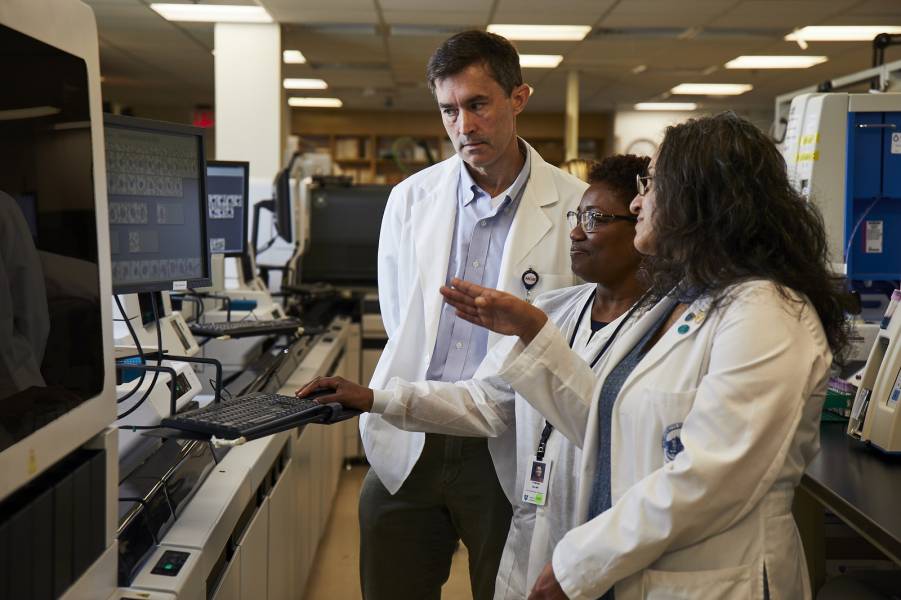The word pathology immediately conjures in the mind images of autopsies and specialists who examine the dead to determine the cause of death. However, the field of pathology covers a vast area that not only includes determining the cause of death but also involves the study of disease.
Pathology also requires collaboration with other medical specialists to provide diagnostic information to help guide patients in the decisions relating to their health care. Another type of pathology deals with scientific study and diagnosis of speech disorders and providing the necessary interventions to fix the associated problems.
 What Does a Pathologist Do?
What Does a Pathologist Do?
The work of pathologists involves research into the causes of human diseases and encompasses specialist areas such as forensic pathology, pediatric pathology, chemical pathology, and transfusion pathology.
Pathologists work in laboratories equipped with the most functional workstations (think Genie Scientific and similar companies) and state-of-the-art equipment to identify the causes of infections and diseases. The job also entails carrying out tests on blood and tissue samples and body fluids. Pathologists also manage test results, maintain blood supplies, and perform autopsies to determine the cause of death.
While some areas of pathology involve working with the dead, speech pathology is all about solving speech and language problems of persons in all age groups. Speech-language pathologists make assessments and treat persons with voice, language, and fluency disorders. Other aspects of the job may include research into speech and language problems, making clinical judgments, and managing patients’ progress.
Career in Pathology
Many young people have an avid interest in the sciences but often do not consider pathology, mainly because most people associate this job with death. However, a pathologist’s work is quite diverse and intertwines areas like microbiology.
Career choices include medical examiners and professors in education. A career in medical pathology demands highly skilled personnel with a bachelor’s degree in medicine from an accredited university. Further training is required through an internship.
If the preference is in speech therapy, studying to become a speech-language pathologist is a viable option.
The pathologist education requirements involve a series of professional certifications, beginning with an undergraduate program in Communication Sciences and Disorders and culminating with professional accreditation.
A career in pathology provides lifelong learning, enviable benefits, and excellent remuneration.
Demand for Pathologists
Research has shown that there are currently over 370 thousand medical pathologists in The United States, and the number is expected to grow by 11% in the next five years. The number of speech-language pathologists is more conservative at over 119,000.
There is a tremendous demand for pathologists due to the broad scope in the field of pathology. In addition, the need for medical pathologists and speech pathologists will always exist because of the prevalence of disease and the problems associated with language and speech.
Pathology includes laboratory work, clinical diagnoses, and performing autopsies that involves a wide range of other specialist areas dedicated to improving human health. Speech-language pathology, on the other hand, consists of diagnosing and treating speech and language disorders.
Pursuing a career in these disciplines provides scope for personal, professional, and financial advancement.

Founder Dinis Guarda
IntelligentHQ Your New Business Network.
IntelligentHQ is a Business network and an expert source for finance, capital markets and intelligence for thousands of global business professionals, startups, and companies.
We exist at the point of intersection between technology, social media, finance and innovation.
IntelligentHQ leverages innovation and scale of social digital technology, analytics, news, and distribution to create an unparalleled, full digital medium and social business networks spectrum.
IntelligentHQ is working hard, to become a trusted, and indispensable source of business news and analytics, within financial services and its associated supply chains and ecosystems























 What Does a Pathologist Do?
What Does a Pathologist Do?




